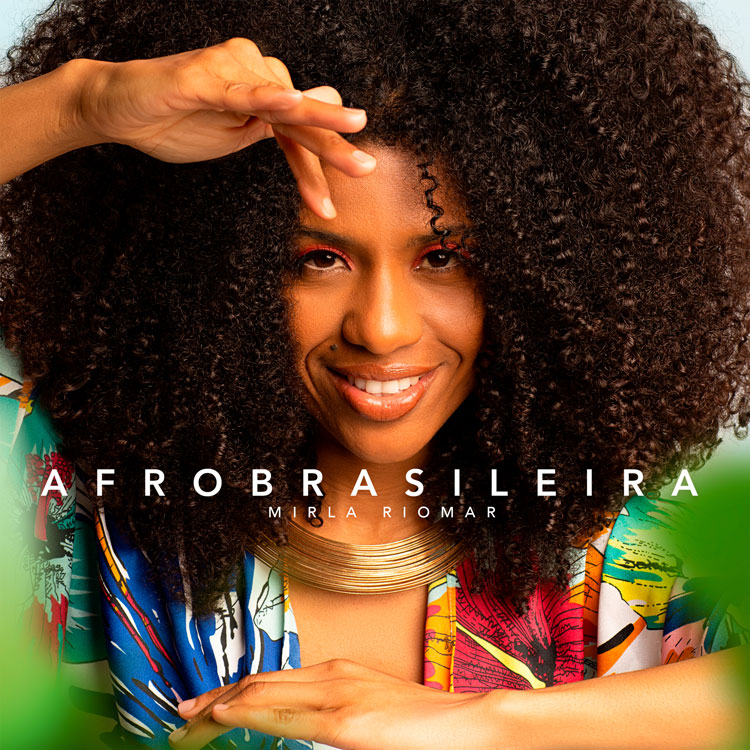Mirla Riomar – Afrobrasileira (Mirla Riomar, 2022)
Mirla Riomar, a Brazilian vocalist currently living in Spain, has released ‘Afrobrasileira’, an album that intertwines the rhythms of Bahia, jazz and soul, as well as subtle electronic elements.
The irresistible Brazilian rhythms on Afrobrasileira include samba de roda, ijexá, forró, ramunha, maculele, samba, arrocha, and samba de caboclo.
The album includes nine original songs written by Mirla at different times in her life, such as ‘Zauê’, her first composition, which she made when she was 13 years old while she lived in the favela of the Bairro da Paz, in Salvador de Bahia. At the time, she participated in a social project where she had her first contact with music. The song talks about a girl’s dreams and the hope of a better future.
Another song about Mirla’s personality is ‘Agua Reboliçada’, which refers to her artistic name, Mirla Riomar, since she was born in a place where the river and the sea meet, a place where waters mix, where her dance movements were born, her way of being.
Other important topics for Mirla are women’s empowerment and black activism. ‘Canto do mar’ describes a traditional festival in Salvador de Bahia where dances and offerings are made to a goddess of the sea called Yemanjá. Mirla highlights the role of black women and her hometown, Bahía, where the sea is a vital element.
In ‘Mulheres da minha terra’, Mirla introduces the listener to the slave women who washed clothes and sold cakes and food in the streets, or completed hard agricultural labor to survive and pay for their freedom. In this song, Mirla brings back the life of her grandmother, who was one of those women.
Another female main character is Maria do Cais, a young woman who lived in a harbor in the 1950s, struggling every day to survive in cabarets and nightclubs. A victim of abuse by her father, she ended up falling in love with a sailor she would never see again.
Mirla Riomar also addresses the social plague of gender violence in the song ‘Sem eira nem beira’, where she tells the account of a woman victim of abuse by her husband who decides to leave home, without any money or support, with the only hope to get her freedom back.
Lastly, Mirla’s songs celebrate her ancestry and spirituality. ‘Pena Branca’ portrays the Caboclos, indigenous ancestors of the tribes that inhabited Brazil before its colonization while ‘Grande Orixá’ is one of the principal songs of the album because it narrates the story of Mirla’s crossing to Europe and how the orixás and their religion provided the support that prepared her and accompanied her during the long journey.
The lineup includes guitarist and co-producer Marcel Vallés, acclaimed percussionist Alan Sousa, as well as Letieres Leite, Gabriel Grossi, Childo Tomas and Jurandir Santana.


